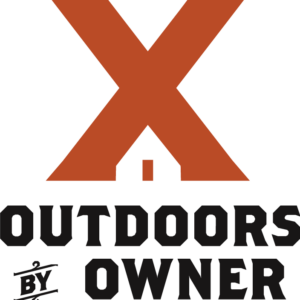One of the greatest misconceptions I think folks have about outdoorsmen is that they are considered to be a secretive group. Secret spots, honey holes, the “x.” These colloquialisms, and about a million other notions, are at the root of the misconceived nature of hunters and fishermen.
In my experience, the sportsman is actually one of the most gregarious archetypes out there. Now I’m not saying you should go ask your local charter captain for his GPS chip, but within reason your average outdoorsman is more than happy to spill the beans.
At the root of this overarching willingness to help our fellow outdoorsmen are a few considerations:
- We were all beginners once. Contrary to what some outdoorsmen may think about themselves, none of us popped out of the womb with an intimate knowledge and understanding of how to target our quarry. Taking this truth to its logical conclusion, that means that every one of us was taught, at least the basics, by someone. And because a true outdoorsman is cognisant that they have been given advice through the years, they are generally willing to impart what they know.
- We are passionate. Passion, in my experience, begets evangelism. Whether you wake up at 2:00 a.m to go chase waterfowl or travel across the country to catch a new species, every outdoorsman must be passionate. Sure, there are casual hunters and fishermen, but by-and-large, we’re a pretty zealous bunch. And when you’re avid about something, you want to talk about it to anyone willing to listen to your experiences. This evangelism takes many forms: from teaching kids how to hunt and fish to swapping stories at the local bar after a long day hunting or fishing.
- We are Conservationists. The era of the meat-hunter who stocks the freezer with never-to-be-cooked game seems to have faded (although I’m sure we’ve all had our moments…). In its place is a generation of outdoorsmen who understand that if we want to continue to have opportunities to harvest fish and game, we need to make sure that our resources are sustainably managed. Sharing information with each other is one of the best ways to self-patrol our resources. Those with the most experience are often the ones who can most effectively weigh in on best practices, whether that is in the context of pressure, correct handling, or ethical taking of our fish and game.
- We believe in Karma. It’s an unspoken rule in the woods and on the water that if you come across someone who looks like they could use a hand, you lend one. Overwhelmingly, I find myself justifying even the most inconvenient aid (like towing a boat 10 miles in a lightning storm) by thinking,”Well, I would want someone to stop and help if it was me.” The same applies to information. Whenever someone asks for some tips on a particular species, I take the time. Why? While I think I am a pretty nice guy, it’s mostly because I know that when I am somewhere unfamiliar or doing something new, I would want the same courtesy extended to me.
With these motivations underpinning every outdoorsman’s outlook, it’s easy to see that we have a lot of reasons to share information with each other. This sharing of information is what we at OBO have coined as the “Democratization of the Outdoors.” And while spreading the gospel of the outdoors is at the core of Outdoors by Owner, we understand that there will always be limits to how much someone can glean from a website.
So next time someone asks you for a tip, give it. If you have an extra spot on the boat or in the hunt camp, invite the guy who is always interested in going. And by the same token, don’t be afraid to go on unfamiliar experiences. Head off on an adventure that makes you uncomfortable and know that with a little patience and a few meaningful conversations, you can extract enough information to have a safe, memorable, and possibly even successful outing. Just don’t ask anyone for their secret spot (and don’t steal it if they take you to one!).
